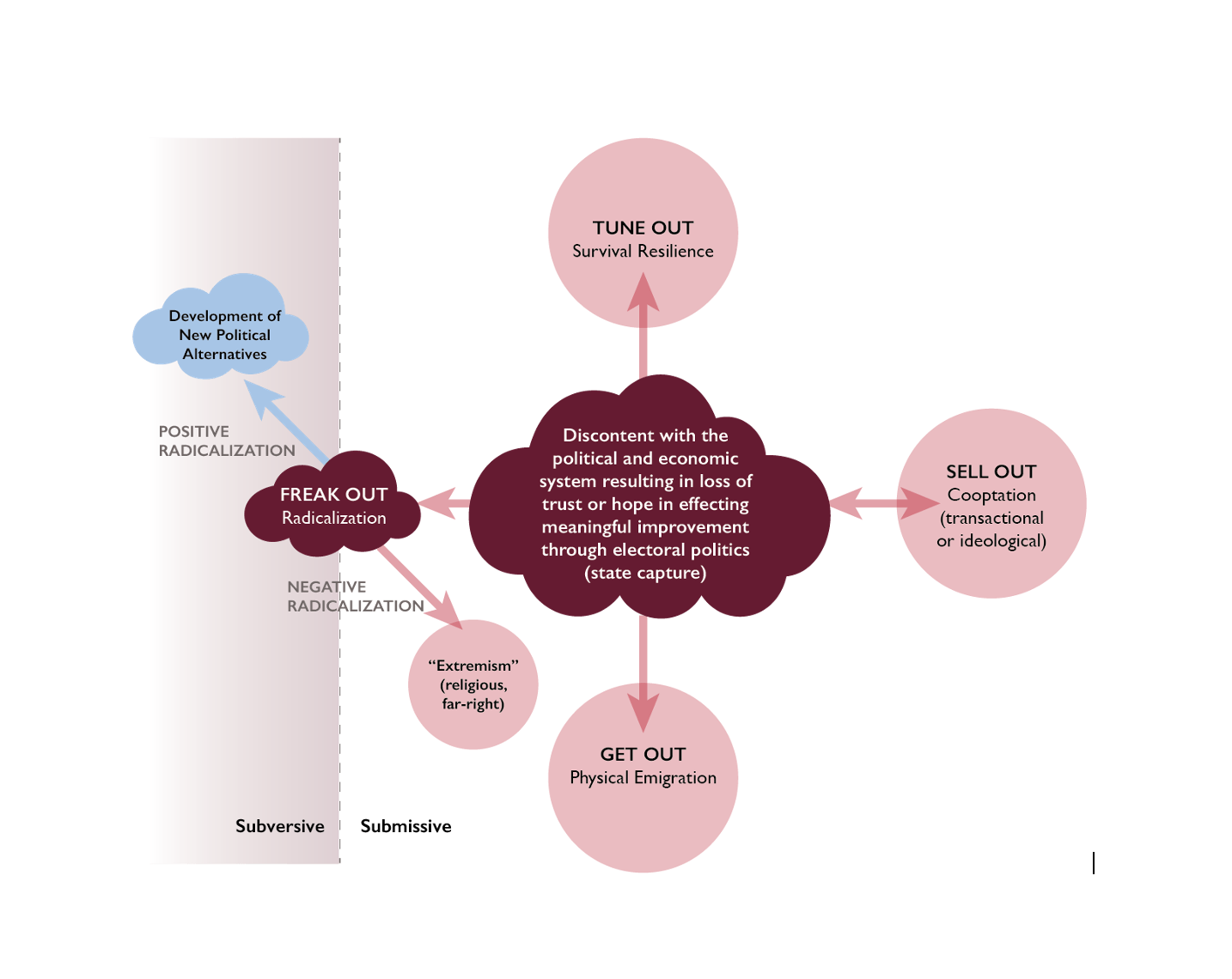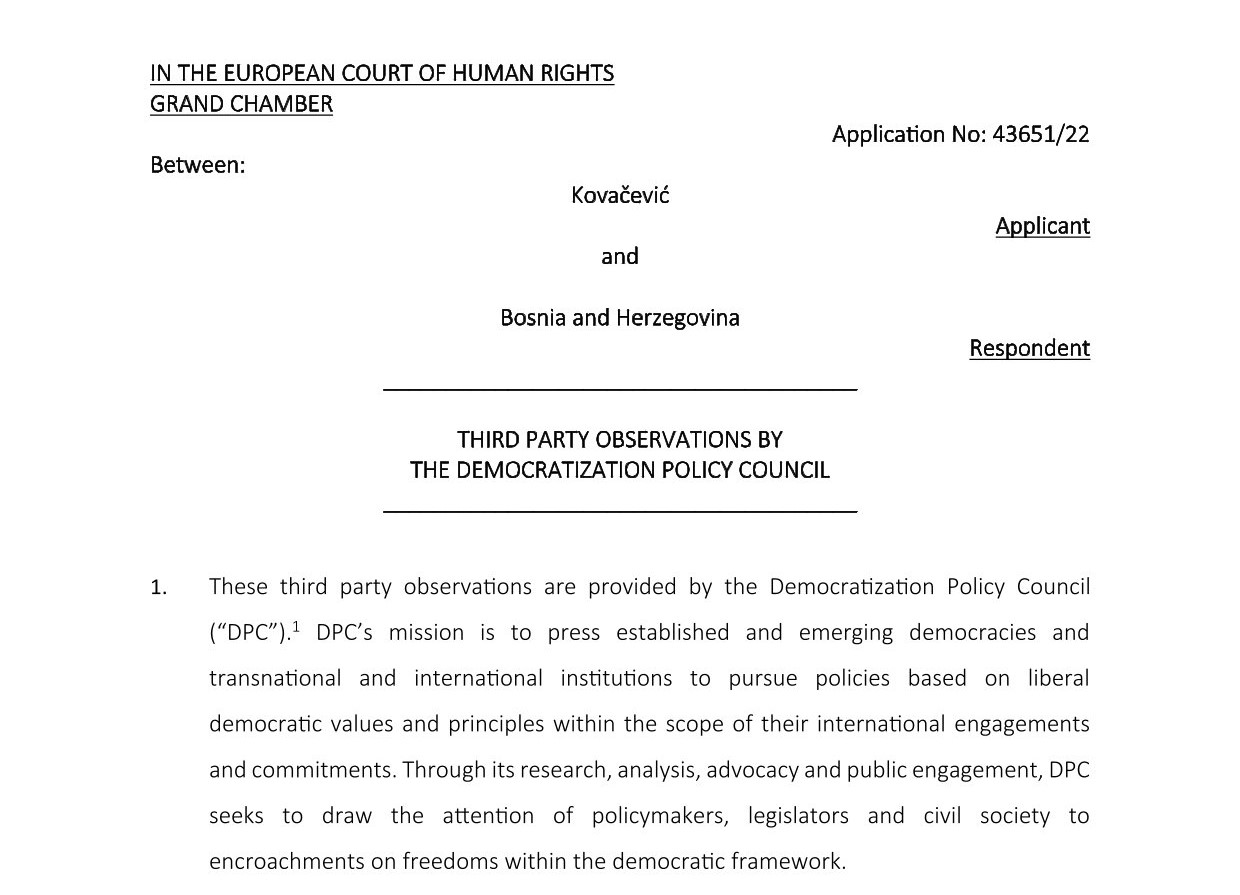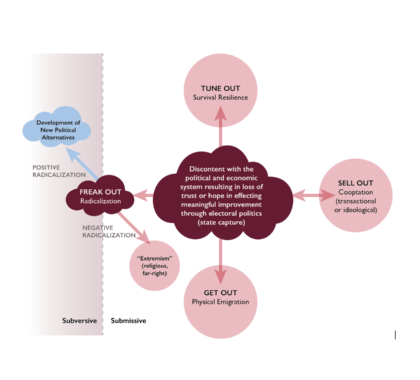Latest blog post
Call for Papers: Freaking Out…. Positively – Resisting Corruption, State Capture and Radicalization in a time of Democratic Decline
DPC is seeking innovative applications of models developed in partnership with Eurothink to understand the links between corruption, radicalization and democratic decline.
Our Mission
DPC’s mission is to press established and emerging democracies and transnational and international institutions to pursue policies based on liberal democratic values and principles within the scope of their international engagements and commitments. Through its research, analysis, advocacy and public engagement, DPC seeks to draw the attention of policymakers, legislators and civil society to encroachments on freedoms within the democratic framework.
News
Deny Moscow a new front in Bosnia
Kurt Bassuener The West needs a strategy to prevent Russia stoking the separatist aspirations of the leader of Bosnia-Herzegovina ethnic Serbs. As Russian President Vladimir Putin prepared for the preordained results of the stacked referendum in Crimea last weekend (16 March), his foreign minister, Sergei Lavrov, met Milorad Dodik, president[…]
DPC in the News on Serbian Elections, Repercussions of Crimean Crisis on the Balkans
Over the last two weeks DPC’s senior associates Kurt Bassuener and Bodo Weber gave a large number of interviews for media in the Western Balkans. On March 23 Kurt Bassuener commented on potential repercussions of the Crimean crisis on political relations in Bosnia for Sarajevo TV1 news: http://www.tv1.ba/vijesti/bosna-i-hercegovina/politika/15579-bassuener-srbija-zbog-puta-ka-eu-nece-podrzati-separatizam-rs.html Bodo Weber[…]
A Common Western Policy Pivot
Outline for a Common Western Policy Pivot on BiH:A new DPC Policy Brief By Bodo Weber & Kurt Bassuener Executive summary and Recommendations Recent popular unrest and protest in Bosnia and Herzegovina (BiH), driven by a lack of political accountability and a dire socio-economic reality, caught all established interests –[…]
EU Policies Boomerang: Bosnia and Herzegovina’s Social Unrest
New DPC Policy Note By Bodo Weber & Kurt Bassuener Executive Summary and Recommendations The social discontent manifest in Bosnia and Herzegovina (BiH), begun with violent protests in Tuzla on February 5, spread throughout the Federation, was a new phenomenon. But it was long in the making. As manifest in demands[…]
Diplomacy and the Syrian Equation
DPC Senior Associate Kurt Bassuener comments on former OHR colleague Philippe Leroux-Martin’s op-ed in the New York Times, “Bosnia’s Lessons for Syria.” In his letter, Bassuener emphasizes the role that NATO application of force played in setting the stage for Dayton. He also expresses deep misgivings about a Dayton-style power-sharing[…]
Repeating past mistakes
In the January 30 issue of European Voice, DPC Senior Associate Kurt Bassuener responds to an article and editorial in the previous week’s issue on an EEAS proposal to radically cut the EU rule of law mission in Kosovo, EULEX, including eliminating international executive personnel. Bassuener argues that this would[…]
Study: State Capture in the Western Balkans
The Democratization Policy Council and Eurothink are pleased to share our report, Sell Out, Tune Out, Get Out, or Freak Out? Understanding Corruption, State Capture, Radicalization, Pacification, Resilience, and Emigration in Bosnia and Herzegovina and North Macedonia. The full volume is available, and also a stand-alone Executive Summary and Recommendations.
This report was based on field work in 2020 with over 200 people, beginning just before the pandemic, and in the summer after the strict lockdowns lifted. Extensive media reviews were conducted for each country, and an online poll. In light of the difficulty in doing field work during COVID-19, this report provides an important overview of the situation in the two countries, from the ground up.
This report is a hybrid: Grounded in academic questions and literature, it strongly reflects the voices of ordinary people in localities that are often ignored in political discussions. In addition to the presentation of data, a set of 18 community snapshots is included to provide a deeper look at the lived impact of a generation of upheaval and stagnation. It also seeks to contribute to theory-building and in turn policy-making, as the issues of polarization, corruption, migration, opportunity, dignity, solidarity and vision were themes encountered and synthesized.
The DPC and Eurothink teams hope that this work will contribute to discussions on all of the themes explored. Most importantly, the report is a reminder of the impact on communities and on people of the radical social changes of the past three decades – changes to which consolidated democracies are themselves not immune.






